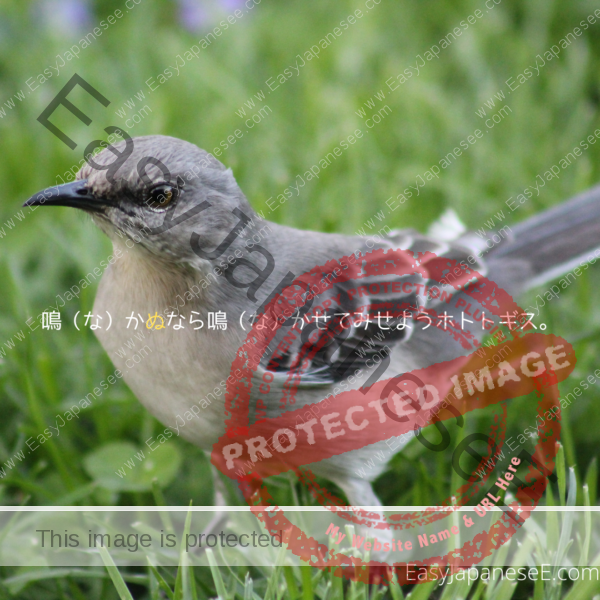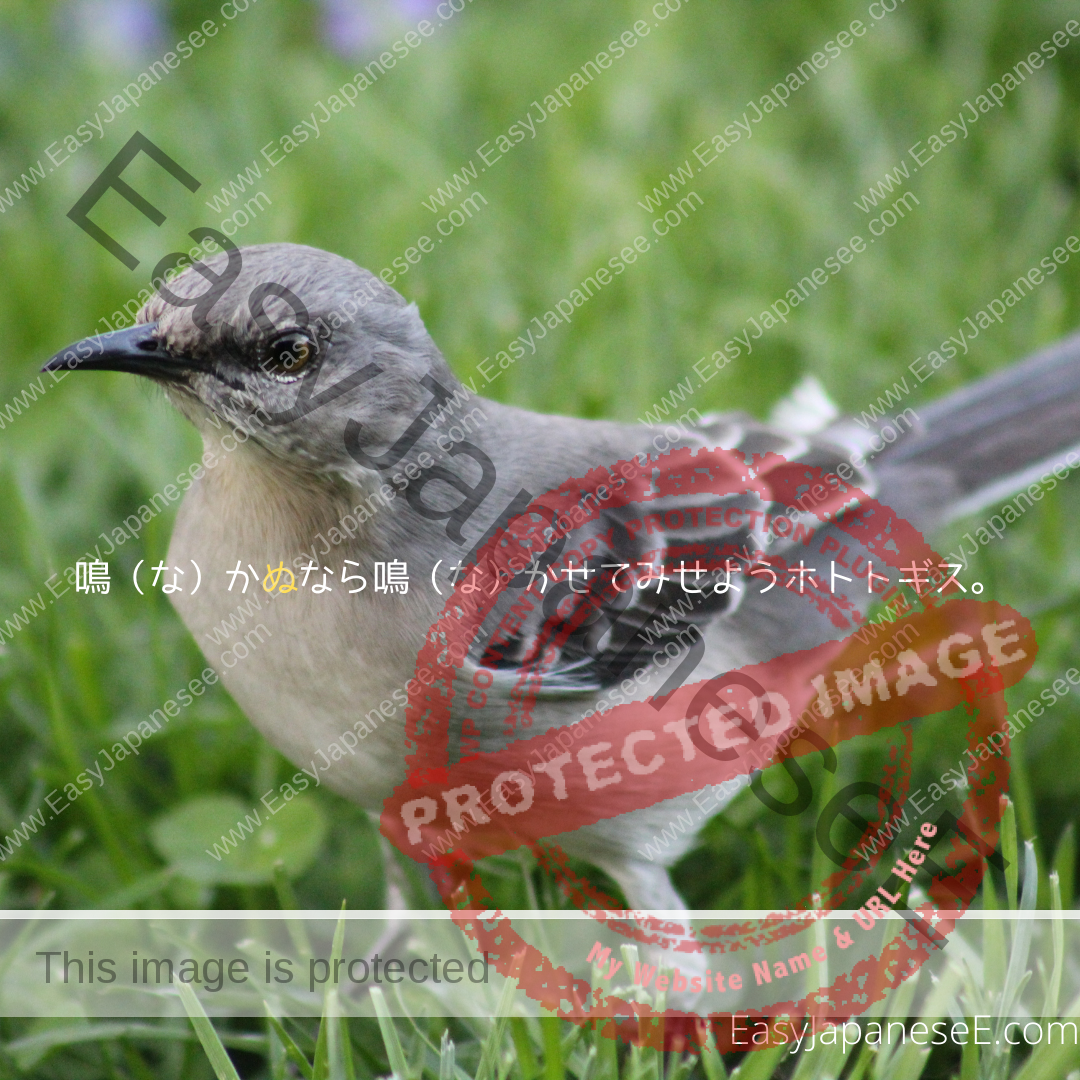
Today’s Grammar Point: ~ぬ/~ん
Today’s grammar point is an archaic expression ~ぬ/~ん that replaces ~ない (negative ending). Although it is archaic and we don’t use it in speech that often but we do see it quite often in written passages. ~ぬ is more often used with in a contact clause (i.e. in front of a noun). If it is used at the end of the sentence, ぬ is usually replaced with ん.
Connection
- [ないform verb stem] + ぬ
- する → しない = せぬ
- くる → こない = こぬ
Examples
知らぬ間に芽が出ていた。
The buds were sprouting before I knew it.予期せぬエラーのため、メールが送れませんでした。
The email could not be sent due to an unexpected error.何度眠れぬ夜を過ごしたことでしょう。
How many times have you spent a sleepless night?未だ見ぬ子のためにセーターを編んでいます。
I’m knitting a sweater for a child I haven’t seen yet.あらぬ疑いをかけられないように、気をつけてください。
Please be careful not to look suspicious.この曲は、書き切れぬ思いを込めた音楽だと思います。
I think this song is music with emotions that cannot be fully expressed with written words.父は食べ切れぬ量の魚を買ってきた。
My father brought home too much fish we won’t be able to finish eating.
Examples of ~ん
父は刺身は絶対食べん。
My father never eats sashimi.絶対許さん。
I will never forgive it!
Well-known phrases using ~ぬ
知らぬが仏。
Ignorance is bliss.鳴かぬなら殺してしまえホトトギス。
If the little cuckoo doesn’t sing then kill it!
(used to describe the personality of Nobunaga Oda, a powerful feudal lord in the 16th century)鳴かぬなら鳴かせて見せようホトトギス。
If the little cuckoo doesn’t sing then I will make it sing.
(used to describe the personality of Hideyoshi Toyotomi, who governed Japan as a supreme minister to an emperor between the time of Nubunaga Oda and Ieyasu Tokugawa)鳴かぬなら鳴くまで待とうホトトギス。
If the little cuckoo doesn’t sing then I will wait until it sings.
(used to describe the personality of Ieyasu Tokugawa, the first Shogun of the Edo shogunate)
If you liked this article, please share it with your friends using the social media buttons below. Also, your clicks on ads on this page help covering the cost of running this website. Your support will be much appreciated.

